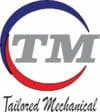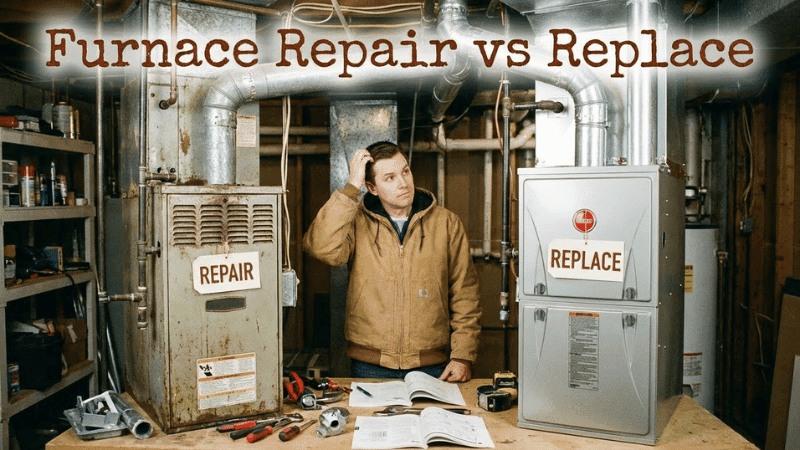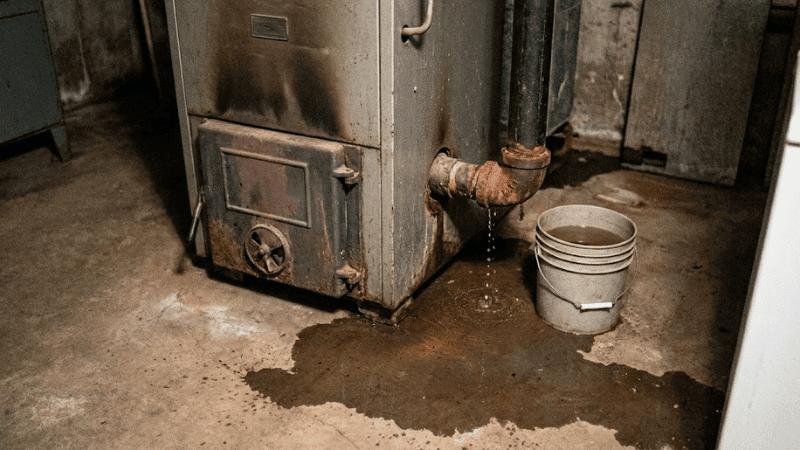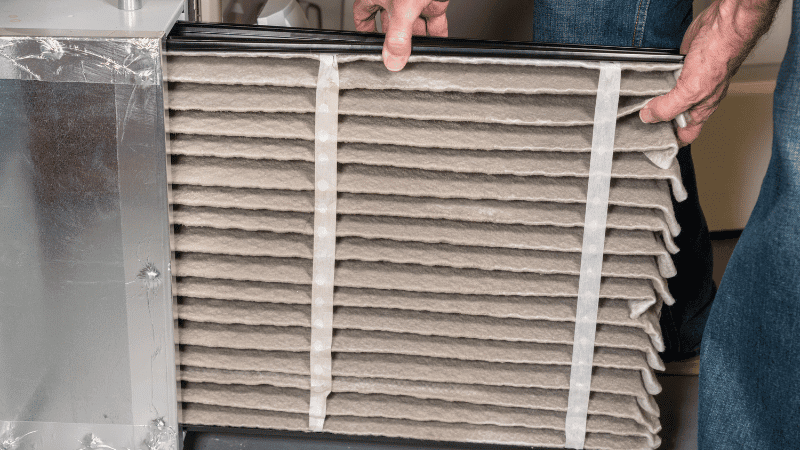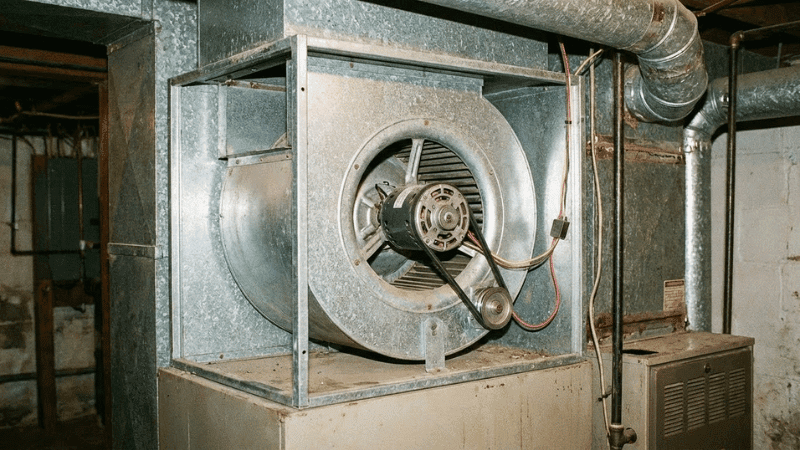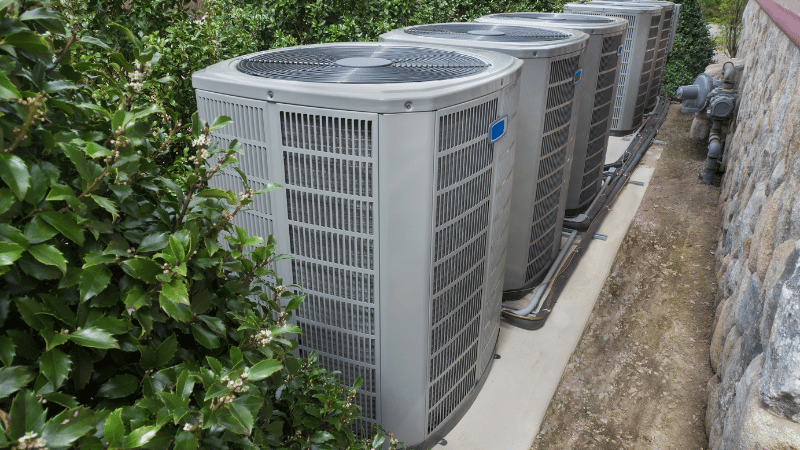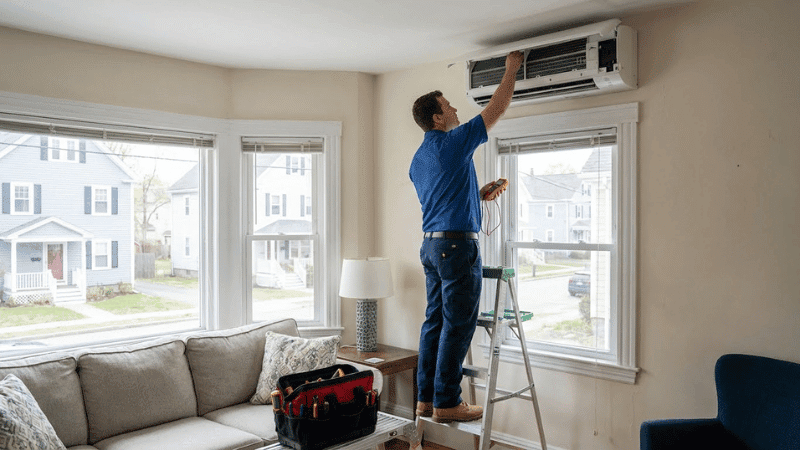How much does it cost to have someone look at your air conditioner?
When the heat waves roll in and your air conditioner starts acting up, the first thing you probably wonder is: “How much does it cost to have someone look at it?” You’re not alone. Thousands of homeowners Google phrases like “AC inspection cost” or “HVAC service call fee” every summer, only to be met with confusing pricing and vague service details.
The truth is, AC inspection pricing can vary widely based on factors like the type of air conditioning system, location, and whether you’re dealing with routine maintenance or a potential repair issue.
Here’s a quick snapshot of what you might expect:
Service Type | Typical Cost Range |
Basic Service Call Fee | $50 – $150 |
Full AC Tune-Up | $65 – $200 |
Emergency HVAC Repair | $100 – $600+ |
In this guide, we’ll walk you through:
- What a professional AC inspection actually includes
- The factors that influence HVAC pricing
- When it’s okay to try a DIY air conditioner check
- Tips for saving money while keeping your home cool
By the end, you’ll know exactly what to expect from a licensed HVAC technician, and how to avoid overpaying for a simple cooling system check-up.
What Does an AC Inspection Include?
Think of an AC inspection like a wellness check-up but for your cooling system. It’s not just someone showing up, glancing at the unit, and handing you a bill. A proper HVAC inspection is hands-on, detailed, and critical for keeping your system humming all summer long.
So, what do licensed HVAC technicians actually do when they come out?
Here’s a breakdown of what’s usually included in a professional AC tune-up:
- Check refrigerant levels to make sure your system is cooling efficiently
- Inspect electrical components for wear, corrosion, or safety hazards
- Clean condenser and evaporator coils to boost energy efficiency
- Evaluate airflow and measure output at vents
- Replace or clean air filters if needed
- Test the thermostat and overall system performance
All of this falls under what many companies call a cooling system diagnostic or preventive maintenance visit. And yes, that fancy phrase usually includes a service call fee in the $50–$150 range, depending on where you live.
This isn’t just about checking boxes it’s about preventing costly HVAC repairs down the line. A well-executed inspection can reveal small issues before they turn into major problems (or massive bills).
Core Cost Breakdown: What Are You Really Paying For?
Alright, let’s talk numbers because when your air conditioner starts acting up, you’re not just worried about comfort. You’re wondering, “What’s this gonna cost me?”
Here’s the deal: the cost of having someone look at your AC breaks down into three main buckets base service call fee, tune-up costs, and additional repair charges. Let’s break them down so you’re not left guessing when the technician hands you the invoice.
1. Service Call Fee
This is the “just to show up” charge. Most HVAC technicians charge a base rate for visiting your home and performing an initial diagnostic check. Expect to pay between $50 to $150, depending on your location and the company’s reputation.
2. AC Tune-Up Cost
A standard AC tune-up which includes cleaning coils, checking refrigerant, and testing the thermostat can range from $65 to $200. It’s a more thorough version of the inspection and often part of annual HVAC maintenance plans.
3. Repair or Part Replacement Costs
If the inspection reveals a bigger issue, that’s when costs can climb.
Here’s what you might see added to your bill:
- Thermostat replacement: $100–$600
- Refrigerant recharge: $200–$500
- Duct cleaning: $350–$1,000
- Coil cleaning: $100–$400
And let’s not forget labor charges, which often make up the bulk of these costs. Especially during peak summer months, seasonal demand can push prices even higher.
Knowing what goes into each line item helps you see the value and decide what’s worth fixing and what’s just fluff on the invoice. A transparent breakdown also helps you spot when you’re dealing with a fair contractor versus someone trying to pad the bill.
Factors That Influence the Cost
So, why does one homeowner pay $70 while another forks over $250 for an AC inspection? Great question and the answer lies in the details. There are several factors that influence HVAC pricing, and understanding them helps you stay in control (and avoid sticker shock).
Let’s break it down MECE-style, nice and clean:
1. Type of Air Conditioning System
Not all ACs are created equal. Some units are simple; others are loaded with tech and complexity. That complexity drives cost.
- Portable and window AC units: Generally the cheapest to inspect
- Central air conditioning systems: Moderate to high cost due to multiple components
- Mini-split or variable-capacity systems: Advanced systems = higher inspection rates
- Geothermal heat pumps: Expect premium service pricing these are complex machines
2. Time of Year
Believe it or not, seasonal demand plays a huge role. It’s kind of like booking flights timing is everything.
- Summer: Peak HVAC season. Higher demand = higher pricing
- Spring or fall: The sweet spot. Lower pricing, better availability
- Winter: Depends on your region, but HVAC pros may offer off-season deals
3. Age and Condition of Your Unit
An older system? That’s more time, more effort, and potentially more problems.
- Newer units usually require minor tune-ups
- Aging systems might need deeper diagnostics, part replacements, or cleaning
- Worn components and hard-to-find parts can drive up both labor and material costs
4. Location and Company Rates
Where you live and who you hire both matter big time.
- Urban areas: Higher costs due to labor rates and company overhead
- Rural areas: Sometimes cheaper, but fewer providers = less competition
- Company reputation: Established brands often charge more but bring experience, warranties, and transparency
These four categories cover most of what shapes your AC service call fee. Understanding these elements lets you shop smarter and plan ahead for future HVAC inspections without dreading the final invoice.
Cost by Type of AC System
Not all air conditioning systems are built the same and neither are their inspection costs. Just like getting an oil change for a luxury SUV will cost more than for a compact car, the type of AC unit you have plays a big role in how much you’ll shell out for an inspection or tune-up.
Let’s break down the typical costs by system type so you’re not caught off guard:
AC System Type | Typical Tune-Up Cost |
Portable AC | $65 – $85 |
Window Unit | $65 – $150 |
Central Air Conditioner | $85 – $200 |
Variable Capacity AC | $85 – $200 |
Packaged System | $90 – $200 |
Geothermal Heat Pump | $175 – $350 |
Mini-Split System | $200 – $400 |
Why the Price Differences?
It all comes down to complexity and accessibility.
- Central air systems require inspection of ductwork, thermostats, and multiple components. That takes time.
- Mini-split systems and geothermal heat pumps are more technical and require specialized HVAC technicians with experience.
- Window and portable units are simpler and faster to inspect, making them budget-friendly.
If your system is tucked away in a tight crawl space or your technician needs extra tools just to access it, that could also tack on extra charges.
So when you’re booking your next AC inspection, don’t just ask for the price mention what kind of system you have. It’ll give you a much more accurate estimate and show the HVAC contractor that you know your stuff.
DIY vs. Professional Inspection: What’s the Right Move?
Let’s be honest when your air conditioner starts making weird noises or blowing lukewarm air, your first thought might be, “Can I just fix this myself?” And hey, we get it saving money sounds great. But there’s a fine line between DIY maintenance and calling in a licensed HVAC technician.
What You Can Do Yourself:
- Replace air filters regularly (every 1–3 months)
- Check thermostat settings for accuracy
- Clear debris around the outdoor unit
- Clean accessible vents and registers
These tasks help maintain airflow and system efficiency. But when it comes to diagnosing deeper issues like low refrigerant levels, faulty wiring, or coil cleaning it’s best to leave it to the pros.
Why Hire a Pro?
- They come with the tools and knowledge for a full HVAC system diagnostic
- They can spot problems before they turn into expensive AC repairs
- DIY mistakes might void your warranty or lead to unsafe conditions
Plus, a seasoned tech can evaluate airflow, test electrical components, and ensure everything’s running at peak performance things a YouTube tutorial can’t quite teach. So unless you’re HVAC-certified, stick to the basics and trust the rest to the experts.
How to Save on AC Inspection Costs
Let’s face it nobody likes surprise expenses, especially when it comes to their air conditioner. The good news? There are plenty of smart ways to save on your next HVAC inspection without cutting corners.
Here’s how to keep your AC service call fee in check:
1. Schedule Off-Season
Spring and fall are prime times for discounts. Avoid the summer rush when seasonal demand sends HVAC service costs skyrocketing.
2. Sign Up for a Maintenance Plan
Many contractors offer annual HVAC maintenance plans that include:
- Priority scheduling
- Free or discounted AC tune-ups
- Reduced repair service fees
These plans often cost less than one emergency visit and keep your unit running smoothly all year.
3. Keep Up with Basic DIY
Replacing air filters, cleaning vents, and clearing debris can reduce wear and tear meaning fewer issues during inspections.
4. Compare Quotes
Always get at least 2–3 quotes from licensed HVAC technicians. A little comparison shopping can save you hundreds.
5. Check for Warranty Coverage
If your system is under a manufacturer or home warranty, your AC inspection or diagnostics may already be covered.
With a little planning, you can protect your system and your wallet.
When to Schedule an AC Inspection
Timing isn’t just everything in comedy it matters for your air conditioning system too. Knowing when to schedule an AC inspection can save you money, prevent stress, and keep your home cool when it matters most.
So, when’s the best time?
Early spring or late fall are ideal. Why? Because you’ll beat the seasonal demand that makes summer inspections more expensive and harder to book. HVAC technicians have more availability, and you’ll get better rates on tune-ups and service call fees.
But sometimes your AC speaks up on its own, and you shouldn’t ignore the signs. Keep an eye (and ear) out for:
- Unusual noises like rattling, hissing, or banging
- Uneven cooling some rooms freezing, others boiling
- A sudden spike in your energy bills
- Frequent cycling turning on and off more than usual
These are red flags that a professional HVAC inspection is overdue.
If you wait until your system breaks down during a heatwave, not only will you be stuck sweating, but you’ll also be paying top dollar for emergency service. Be proactive, and your cooling system (and budget) will thank you.
Choosing the Right HVAC Technician
Not all HVAC technicians are created equal and when it comes to your air conditioning system, choosing the right pro can mean the difference between a smooth tune-up and a costly headache.
Here’s how to make sure you’re hiring someone who actually knows their stuff:
1. Check Licensing and Insurance
Always verify that your technician is licensed and insured in your state. This protects you if something goes wrong and ensures they’re trained for air conditioning inspections and repairs.
2. Look for Reviews and References
- Check sites like Google, Yelp, or Trustpilot
- Ask neighbors or friends who they trust for HVAC service
- Look at Better Business Bureau ratings and complaint history
3. Ask the Right Questions
Before they show up, ask:
- What’s included in your AC tune-up?
- Do you charge a flat service call fee or hourly rate?
- Are there additional charges for diagnostics or repairs?
4. Transparency is Key
A good technician will walk you through the HVAC inspection process, explain findings clearly, and offer honest recommendations without pushing upsells.
You’re not just buying a service you’re trusting someone with the comfort of your home. Make it count by choosing wisely.
Conclusion
Getting your air conditioner inspected isn’t just another item on your to-do list it’s a smart move for your comfort, your wallet, and your peace of mind. Whether you’re paying a basic service call fee or investing in a full AC tune-up, understanding the costs, timing, and what’s included helps you make better decisions.
Here’s a quick recap:
- Schedule inspections before peak season
- Choose a licensed HVAC technician
- Stay proactive with preventive maintenance
- Know the signs that your cooling system needs attention
A little prep today means fewer surprises tomorrow and a lot more cool air when you need it most.
